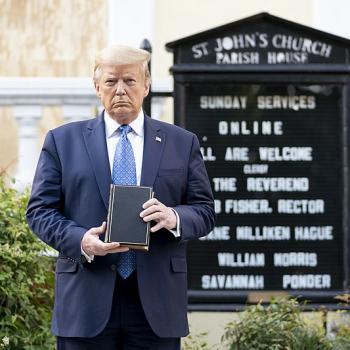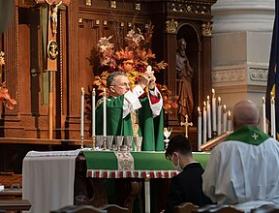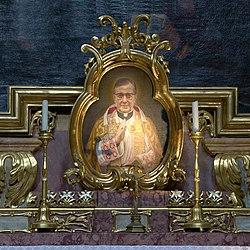Latin is an excellent way to learn English.
Does that sound counter-intuitive?
It’s based on my own experience of studying Latin. I don’t know that I learned much Latin, but the study of it taught me the English language inside out. Studying Latin was a beneficial activity for me that I do not regret in the least.
Nothing gets arguments going like the subject of the Catholic Church and Latin. I’ve seen remarkably exaggerated comments from people on both sides of this discussion. To me, Latin is a language, and like every other language, it is a tool for communication. The Latin that we use today is easy stuff, mainly because it’s a dead language. That means it doesn’t have the burden of idioms from common usage to muddy it.
We basically use the Latin of the great Roman poets, not the every day Roman. It is simple and clear. For that reason, studying Latin is an effective prism for viewing a huge mess of a language like English. Latin allows the student to boil English down to its skeletal roots and see how it hangs together from the inside.
I’m not quite so enthusiastic about Latin as liturgy. I think it had a place once upon a time, and still has a place in a limited usage, even today. But the mass is more than the language in which it is prayed. The mass is communion and communication. It is prayer, worship, and mystery, all rolled into one.
Wrapping all this in a language that is inaccessible to most people can easily push the mystery over the edge into magic. The mass is many things, but it is not an incantation. The Eucharist, which is the sum total of the Church itself, is the point where heaven and earth meet. It is the simple and plain way in which ordinary people can reach out and touch the living Christ and, like the woman who touched the hem of His garment, be healed.
It is not a magic charm and it is not a superstition.
For many people the Latin mass deepened the mystery of the mass to the point that it became inaccessible. Rather than the reverence which proponents of the Latin mass feel and miss, it became something that verged on superstition for a lot of people.
Mass in the vernacular is an antidote for that. By making the mass accessible, it allows people who are willing to bring worshipful hearts to their mass attendance to enter into the upper room.
The mass is a re-creation of Calvary. It is where heaven and earth meet in the Eucharist which is given for all. As such, it should be both beautiful and accessible. That’s why I dislike it when the liturgists load it down with ugly words like “consubstantial.” Not only is this language inaccessible to many people, it is flat-out ugly. I think that it challenges the reverence that the mass is due with this ugliness.
As for the question of whether or not Latin is making a comeback, I hope it is. Latin is a beautiful language. Studying Latin is a useful enterprise. The Latin mass should be an option for those who benefit from it and who grow spiritually by participating in it.
But the mass needs to be accessible. After all, the mass brings us into contact with a Savior Who spoke to us about rainfall and harvests, lost coins and wedding feasts. If He could be accessible, so should the celebration of His Body and Blood.
I know that those are fighting’ words. So now that I’ve said them I’ll back off and let the discussion begin.












